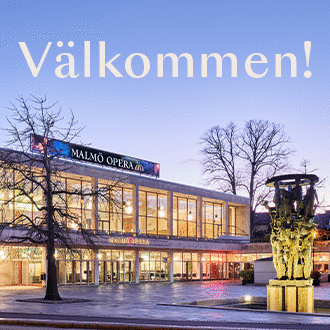The number of exchange students at Lund University has almost doubled in the last ten years.
But the number of places on the Swedish courses has stayed the same.
– I would have appreciated further studies at university level to be able to learn the language, says student Lukas Gwardak.
He has studied at Lund University for a year, but still has not had the opportunity to learn Swedish properly. Lukas Gwardak from Essen in Germany has applied to the university’s five-point Swedish courses several times, but has never been accepted.
– Everyone is offered a three week course at Folkuniversitetet when they arrive here, and that was a positive surprise when I arrived. But the pace was slow and I would have wanted to continue at university level to be able to learn the language, he says.
According to Lukas Gwardak the most important thing for an exchange student is to get to know the culture.
– Language is the key to the Swedish society, but it is impossible to get to know it if you only speak English, he says.
Lucky to be accepted
The five-point courses in Swedish for exchange students are arranged by the Department of Scandinavian Languages at Lund University. But only a third of those who apply are accepted. The places are distributed by the international coordinator at each faculty, who rank the students based on the relationship with partner universities and the student’s needs.
Courses are given on three difficulty levels, but because there are not enough places no one is allowed to take more than one course.
– Money is distributed in a very ”lagom” way, says Liam Wyatt with a smile.
When he arrived from Sydney about six months ago he was lucky enough to be accepted to one of the coveted places.
– It was a very good course that felt very professional. I would have wanted to sit in on the continuation course when my beginners’ course was over, but I was not allowed, he says.
Liam Wyatt speaks Swedish after the course, but he emphasises the importance of socialising with Swedes if you want to make use of what you have learned.
– You don’t have to speak perfectly, the important thing is to give it a try. By getting involved at a nation I have met a lot of people and that helps the language as well, he says.
The number of exchange students at Lund University has almost doubled in the last ten years, from about 800 to over 1400 last year. But the number of places on the Swedish courses has stayed the same. The reason that the supply has not met the demand is that the courses cannot be included in a Swedish degree. Therefore, the Department of Scandinavian Languages is not paid per student, as is the case with other courses. Instead they are given a cash contribution from the University.
– It has been the same amount for many years even though the number of students has increased, says Carlos Tuesta-Soldevilla, international liaison at the Faculties of Humanities and Theology.
Courses can be bought
At the Faculty of Engineering (LTH) they have chosen to solve the problem themselves. During the last three years LTH have arranged their own courses to be able to offer their students education in the Swedish language.
– The Faculties of Humanities and Theology have contributed by financing two groups, but no other faculties have shown any interest in contributing. What we need is a contribution from the University that is proportionate to the number of incoming students, says Carlos Tuesta-Soldevilla.
According to him, the students who are doing well should have the opportunity to continue with their studies.
– That way they get to know our community better and in the long run that is good for our relationships with other countries, he says.
Photography: Elias Björn
Translation: Lin M. Grimhammar









